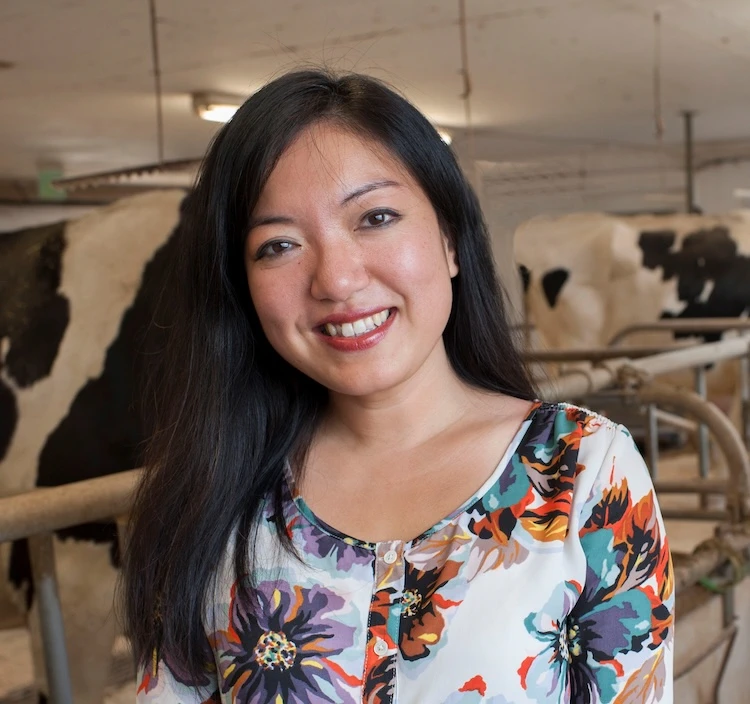
Felicia Wu, John A. Hannah Distinguished Professor and University Distinguished Professor in Michigan State University’s College of Agriculture and Natural Resources, was selected to serve as co-chair of the National Academies of Sciences, Engineering and Medicine, or NASEM, committee on the ethical, legal, environmental, safety, security, and other appropriate societal issues related to engineering biology research and development.

“It is such an honor to co-chair this National Academies committee,” Wu said. “While I’ve worked in agricultural biotechnology since 2000, so much has changed since then that its applications now were almost unimaginable 25 years ago. For example, we can imbed genetically engineered, or GE, microbes into concrete so that it has the ability to self-heal from cracks.
“We also can employ GE microbes in soil to allow crops to fix nitrogen from the air as fertilizer, rather than needing to apply nitrogen fertilizers that then contaminate our water,” she said. “Other GE microbes can remediate pollution spills on land or in water. We can program cells, and make synthetic cells, with a variety of functions. But even as we celebrate biotechnology’s possibilities, we need to carefully assess risks as well as ethical, legal and social implications of such technologies.”
Wu said that the National Academies committee is also examining the risks associated with mirror life — a concept in synthetic biology where cells, including bacterial cells, are created with DNA and proteins that are mirror images of those found in natural life. If such mirror bacteria could be created, they may evade organisms’ natural immune responses and could pose risks to human health and the ecosystem,” Wu said. “This work builds on research conducted by MSU’s Richard Lenski and James Tiedje.”
Wu, who is a faculty member in the departments of Food Science and Human Nutrition and Agricultural, Food and Resource Economics, is also a member of the joint Food and Agriculture Organization of the United Nations and World Health Organization expert committee on Food Additives; a member of the World Health Organization Food-Based Dietary Guidelines Committee; and an elected fellow of the Society for Risk Analysis. She has previously served on a U.S. National Academy of Sciences committee on the future of animal sciences research and as a NASEM speaker on food safety of lab-grown foods. She is the immediate past president of the Society for Risk Analysis. Additionally, she was appointed by Gov. Gretchen Whitmer as a member of the Commission of Agriculture and Rural Development for the state of Michigan.
Wu earned her doctorate in engineering and public policy at Carnegie Mellon University and a bachelor of arts and master of science degree in applied mathematics/medical sciences at Harvard University.
This story was originally featured by MSU Today.
Is your company interested in partnering with any of MSU’s agricultural researchers? Click Here.
About the MSU Innovation Center:
The MSU Innovation Center combines research partnerships, technology transfer, and startup support for MSU faculty who aim to see their research applied to make the world a better place.
Composed of Business Connect, MSU Technologies, and Spartan Innovations, the MSU Innovation Center aims to amplify the impact of faculty research and drive economic growth while positively impacting society to solve real-world challenges with cutting-edge ideas.
Through mutually beneficial, long-term partnerships with the private sector, we connect MSU faculty with companies for corporate-sponsored research collaborations. We also play a key role in facilitating the commercialization and public use of technologies and copyrightable materials, moving MSU’s innovations from the lab to the marketplace. Importantly, we provide significant support for faculty entrepreneurs in establishing startup companies based on technologies developed at MSU.
